Related Research Articles
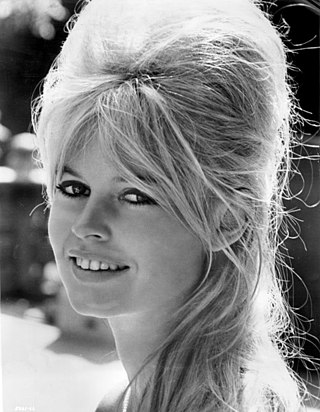
Brigitte Anne-Marie Bardot, often referred to by her initials B.B., is a French former actress, singer, and model as well as an animal rights activist. Famous for portraying sexually emancipated characters, often with hedonistic lifestyles, she was one of the best known activists in the sexual revolution of the 1950s–1970s. Although she withdrew from the entertainment industry in 1973, she remains a major popular culture icon and a noted figure in ushering in the sexual revolution. She has acted in 47 films, performed in several musicals, and recorded more than 60 songs. She was awarded the Legion of Honour in 1985.

Marcel Albert Carné was a French film director. A key figure in the poetic realism movement, Carné's best known films include Port of Shadows (1938), Le Jour Se Lève (1939), Les Visiteurs du Soir (1942) and Children of Paradise (1945); the latter has been cited as one of the great films of all time.
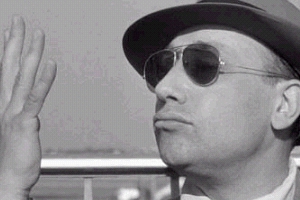
Jean-Pierre Grumbach, known professionally as Jean-Pierre Melville, was a French filmmaker. Considered a spiritual father of the French New Wave, he was one of the first fully-independent French filmmakers to achieve commercial and critical success. His works include the crime dramas Bob le flambeur (1956), Le Doulos (1962), Le Samouraï (1967), and Le Cercle Rouge (1970), and the war films Le Silence de la mer (1949) and Army of Shadows (1969).
Jacques Becker was a French film director and screenwriter. His films, made during the 1940s and 1950s, encompassed a wide variety of genres, and they were admired by some of the filmmakers who led the French New Wave movement.

Micheline Presle was a French actress. She was sometimes billed as Micheline Prelle. Starting her career in 1937, she starred or appeared in over 150 films appearing first in productions in her native France and also in Hollywood during the era of Classical Hollywood Cinema, before returning again to Europe, especially French films from the mid-1960s until 2014.
Sheldon Hall is a film historian based in the Humanities department of Sheffield Hallam University.
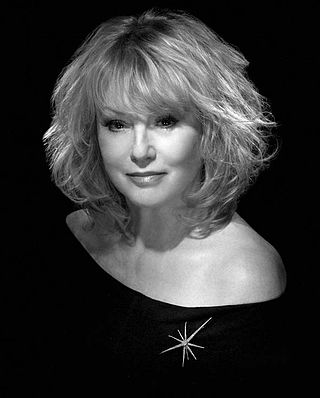
Mylène Demongeot was a French film, television and theatre actress and author with a career spanning seven decades and more than 100 credits in French, Italian, English and Japanese speaking productions.
Claude Renoir was a French cinematographer. He was the son of actor Pierre Renoir, the grandson of painter Pierre-Auguste Renoir, and the nephew of director Jean Renoir.

La Vérité is a 1960 French drama film directed by Henri-Georges Clouzot, and starring Brigitte Bardot. The film was nominated for the Academy Award for Best Foreign Language Film.
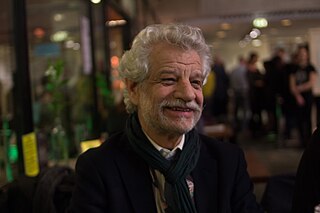
Thomas Elsaesser was a German film historian and professor of Film and Television Studies at the University of Amsterdam. He was also the writer and director of The Sun Island, a documentary essay film about his grandfather, the architect Martin Elsaesser. He was married to scholar Silvia Vega-Llona.
Marie Epstein was an actress, scenarist, film director, and film preservationist. Her career is distinguished by three important collaborations. Throughout the 1920s, she acted in and wrote scenarios for films directed by her brother, Jean Epstein. From the 1920s through the early 1950s, she collaborated with the director Jean Benoît-Lévy on sixteen films, serving variously as a writer, assistant director, and co-director. From the early 1950s to her retirement in 1977, Epstein served as a film preservationist at the Cinémathèque française.
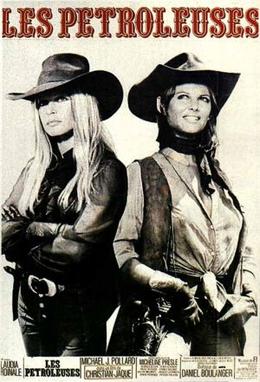
The Legend of Frenchie King or Petroleum Girls is a 1971 French, Spanish, Italian and British international co-production western comedy film directed by Christian-Jaque and starring Claudia Cardinale and Brigitte Bardot.

Claude Gensac was a French actress. She appeared in more than 70 films and television productions since 1952. Gensac is the oldest nominee to date in the category César Award for Best Supporting Actress, nominated in 2015 for her role as Marthe in the film Lulu femme nue.

Robert Le Vigan was a French actor.

The Bride Is Much Too Beautiful is a 1956 French comedy film directed by Pierre Gaspard-Huit and starring Brigitte Bardot, Micheline Presle and Louis Jourdan. It is also known by the alternative title of Her Bridal Night.
The Norwich Women's Film Weekend was a two-day annual event that ran for 10 years, from 1979 to 1989, at Cinema City in Norwich. It was organised to 'promote and encourage women film-makers and present the audience with films dealing with women's issues', as the first programme (1979) put it. It was the first event created, curated, managed and implemented by a group called Cinewomen. The NWFW lasted longer than any other women's film festival in the UK and forms part of the history of women's cinema and feminism more generally, and also the history of culture and the arts in Norwich.
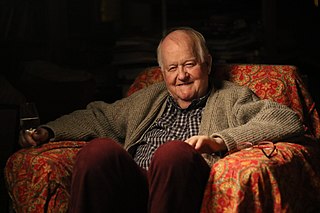
Peter John Graham was a British writer, restaurant critic, translator and filmmaker based in France. He was the author of several books about film and about food, including A Dictionary of the Cinema (1964), The French New Wave (1968) and Mourjou: The Life and Food of an Auvergne Village (1998), which recounted the culinary life of the remote French village in which he lived for more than four decades.
Marie Daëms (1928–2016) was a French stage, film and television actress. After studying at the Lycée Jules-Ferry in Paris, Daëms made her stage debut in 1947 and her first screen appearance in 1949. She was married to the actor François Périer from 1949 to 1959.
C'est arrivé à 36 chandelles is a French film directed by Henri Diamant-Berger, it was released in cinemas on October 16, 1957.
Cinémonde was a weekly popular film magazine which existed between 1928 and 1971 with six-year interruption due to its ban during the Nazi occupation of France. It was one of the best-selling magazines in its category particularly in the 1950s.
References
- ↑ "Professor Ginette Vincendeau". King's College London. Retrieved 19 June 2020.
- ↑ "Professor Ginette Vincendeau". King's College London. King's People. Retrieved 26 March 2021.
- ↑ "Ginette Vincendeau". BnF Data. Retrieved 26 March 2021.
- ↑ "Ginette vincendeau". BFI. Retrieved 26 March 2021.
- ↑ "Author Spotlight: Ginette Vincendeau". The Criterion Collection. Retrieved 26 March 2021.
- ↑ Harrod, Mary; Vincendeau, Ginette; Powrie, Phil (5 February 2020). "Studies in French Cinema Becomes French Screen Studies". French Screen Studies. 20 (1): 1–5. doi: 10.1080/14715880.2019.1705531 .
- ↑ Higbee, Will; Leahy, Sarah (2011). Studies in French Cinema: UK Perspectives, 1985-2010.
- ↑ "Professor Ginette Vincendeau". King's College London. King's People. Retrieved 26 March 2021.
- ↑ "Professor Ginette Vincendeau". King's College London. Research portal. Retrieved 26 March 2021.
- ↑ "Professor Ginette Vincendeau". King's College London. King's People. Retrieved 26 March 2021.
- ↑ "Professor Ginette Vincendeau". King's College London. Research portal. Retrieved 26 March 2021.